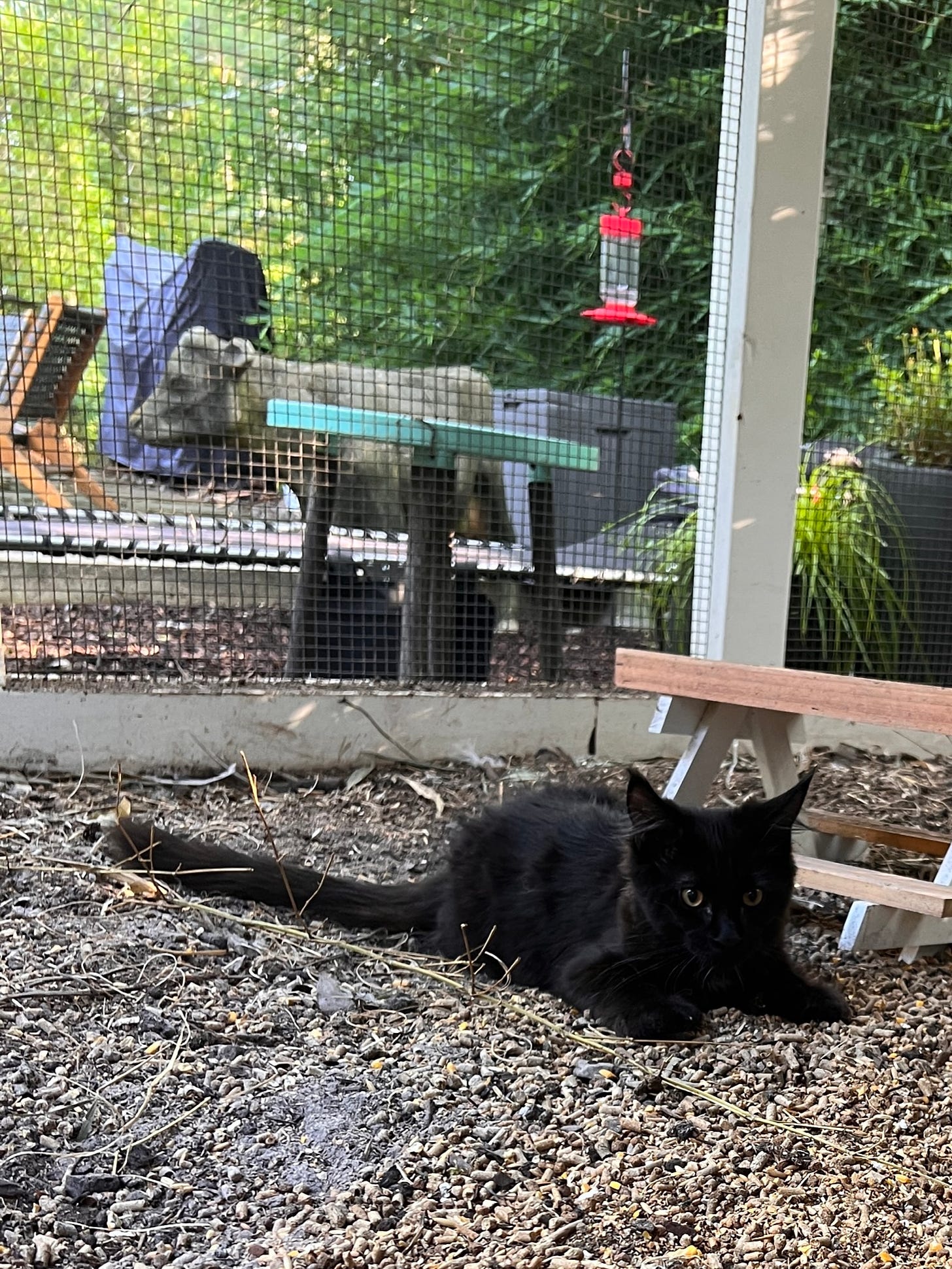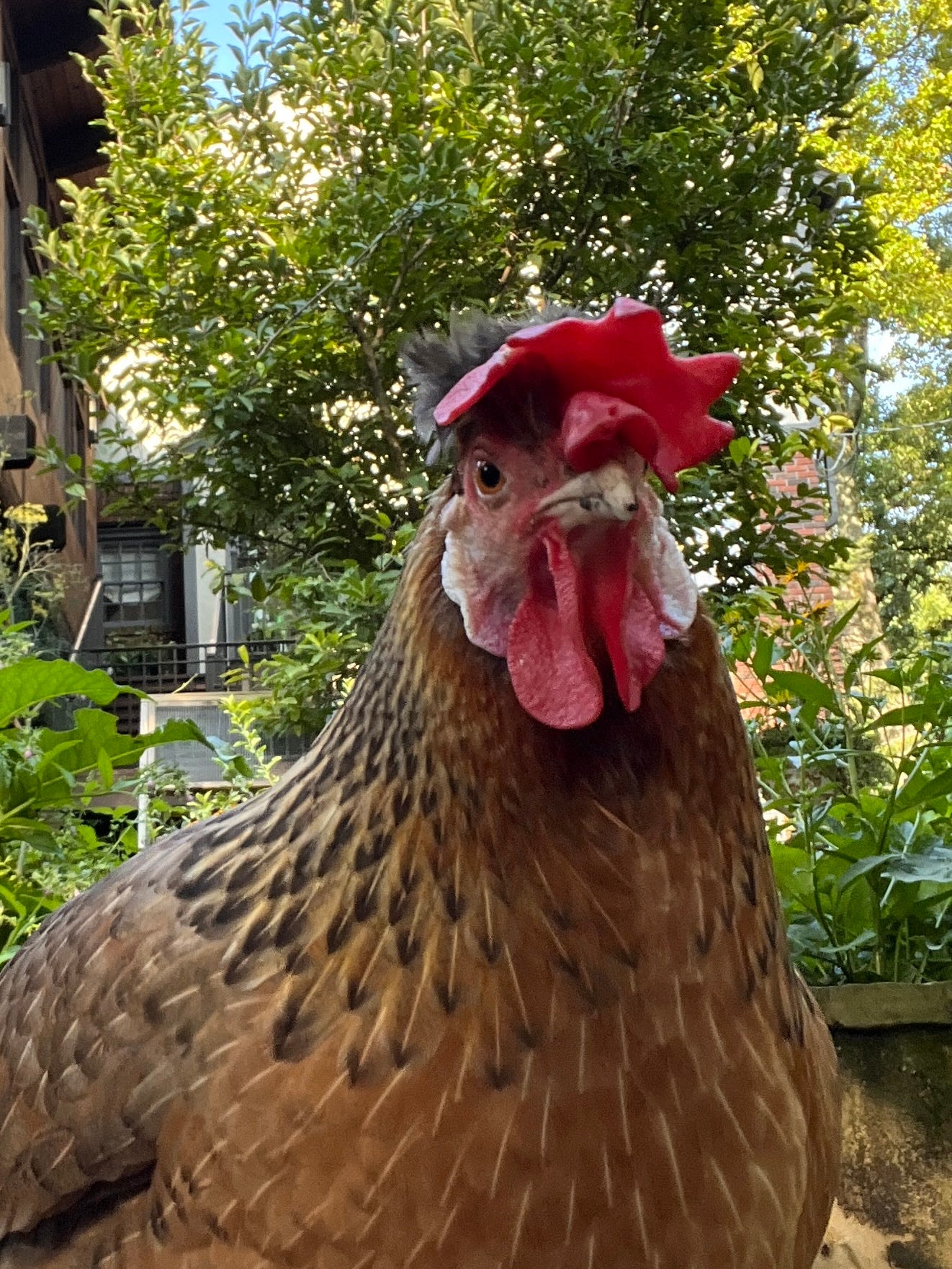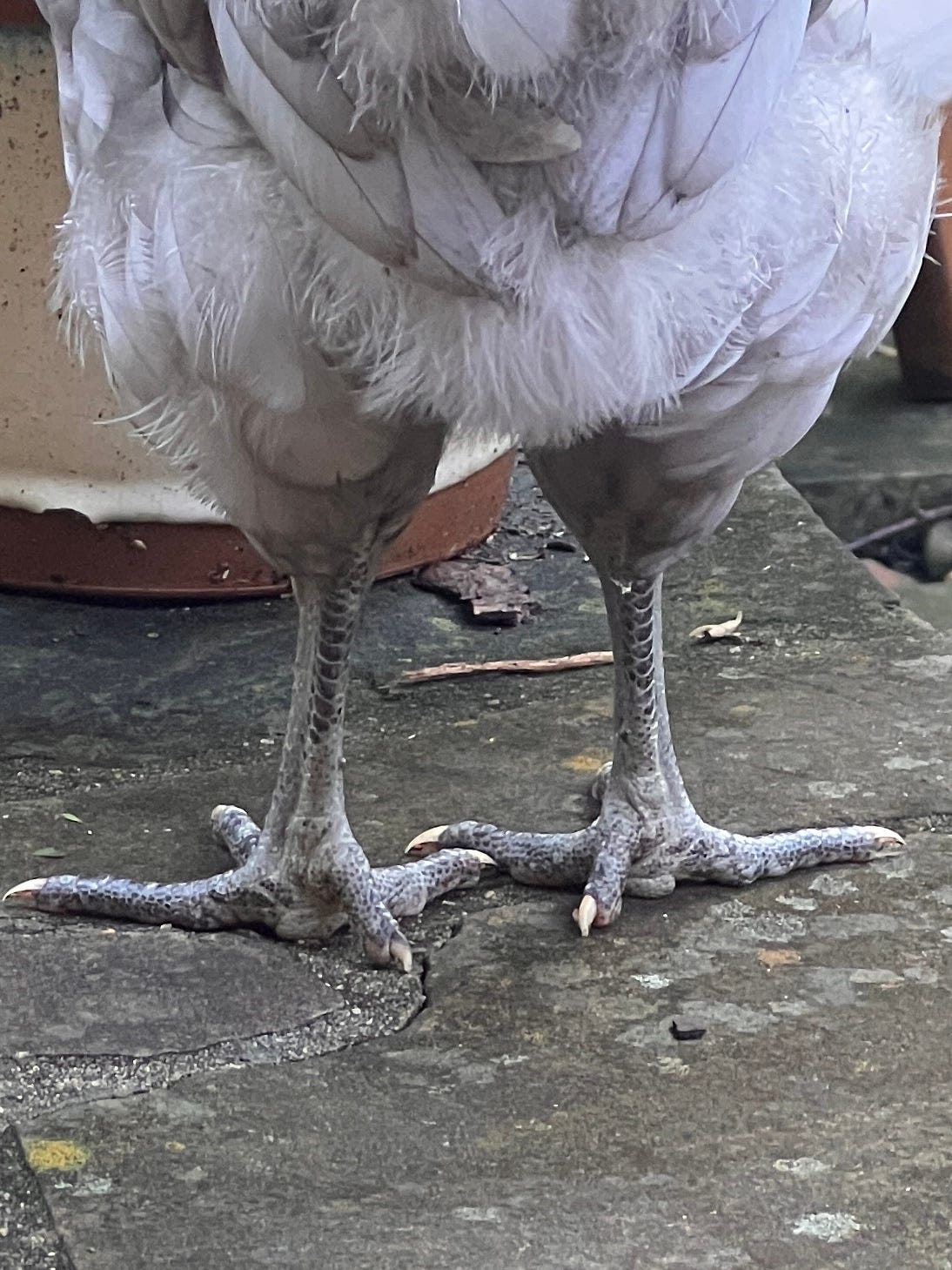In light of the mounting requests for chicken updates, I thought I’d send a few photos tonight. First off, this year’s new bunch are doing great. If I stop to putter in the garden on the way down to see them in the morning, they all congregate on the chair I drink my coffee in, to urge me on.
At least for now, there’s detente with our new kitten, Tofu. Pepper, our black Silkie chicken, seems completely convinced they’re related, and the others seem interested, but concerned when he gets zoomies. He likes their coop.
Pepper keeps a watchful eye over him.
As does Bella, the most loyal, protective dog ever. Amazingly, Tofu has conquered both of our dogs, and they let him do whatever he wants. I didn’t see that one coming.
My buddy Pickles continues to be the biggest lap chicken, while Ruth mostly just squawks at me to give her more treats.
And, if you have any doubts I’m living with a small tribe of dinosaurs, these feet! Honestly.
If I were more creative, I would figure out how to explain Georgia’s Racketeer Influenced and Corrupt Organizations Act (RICO), using chickens, but I haven’t managed that yet. I expect RICO is what we’ll be talking about later this week. The federal RICO law was designed to let prosecutors hold high level figures in organized crime accountable—the guys who had figured out not to touch the drugs themselves. Georgia’s law is similar. RICO laws allow prosecutors to hold groups of people accountable for ongoing criminal activity.
Georgia’s law is one of those cases where the language of the statute itself is not particularly illuminating. It’s the worst kind of legalese. But in practice, it allows officials to connect what would on the surface appear to be unrelated crimes, so long as there are common objectives and a pattern of crimes used to achieve them can be established. Federal law requires prosecutors to prove the existence of a criminal “enterprise.” Although Georgia law does not, Fulton County District Attorney Fani Willis may choose to characterize the group of lawyers and others trying to overturn the Georgia election that way.
Establishing a “pattern of racketeering activity” is at the core of the statute. Prosecutors must show an individual or the group engaged “in at least two acts of racketeering activity in furtherance of one or more incidents, schemes, or transactions that have the same or similar intents, results, accomplices, victims, or methods of commission or otherwise are interrelated by distinguishing characteristics and are not isolated incidents.” These are called “predicate acts.”
Georgia law is broader than federal law in some ways. One is that more crimes qualify as predicate acts—the pattern of criminal behavior needed to meet the statute’s requirements. Although the laundry list of crimes that qualify start with violent crimes you would expect like murder, kidnapping, and “smash and grab” burglary, it goes on to list other crimes including forgery, bribery, making false statements to state officials, perjury, influence or tampering with witnesses, and violation of the Georgia Computer Protection Act. The publicly known facts suggest Willis has more than the two predicate that are necessary, given this breadth of options. A violation of the statute is punishable by five to 20 years in prison.
But Rico is not without issues. In 2013, Willis, then an assistant Fulton County DA, indicted 35 Atlanta Public Schools educators using the law. They were charged with conspiring to cheat on standardized test scores. That was a big deal, because high scores were essential for the state to obtain a $400 million grant for school reform. The prosecution took RICO well beyond the bounds of organized crime, even beyond the street gangs it has been increasingly used against in both Georgia and the federal system. The teachers case took eight months to try, the longest in Georgia’s history (an upcoming RICO prosecution against the rapper Young Thug on allegations his music label is a criminal street gang is expected to take even longer to try). The amount of time and the complications of trying a large number of defendants together make RICO cases complex.
When Willis announced the Young Thug indictment, she said that one of the reasons she favored RICO was that it “allows juries and the communities to see the complete picture of a crime, so they can truly be educated and have facts to weigh when they make a decision.” That is certainly a hat tip towards why she might consider using the statute to deal with an organized group that tried to overturn an election. We’ll likely know more later this week, if the speculation Willis is headed for a Tuesday indictment hold up.
We’re in this together,
Joyce











Thanks for explaining the difference between the federal and Georgia RICO acts.
Little black cats always take control of the situation. :-)
I love all your pets and hearing about their personalities.